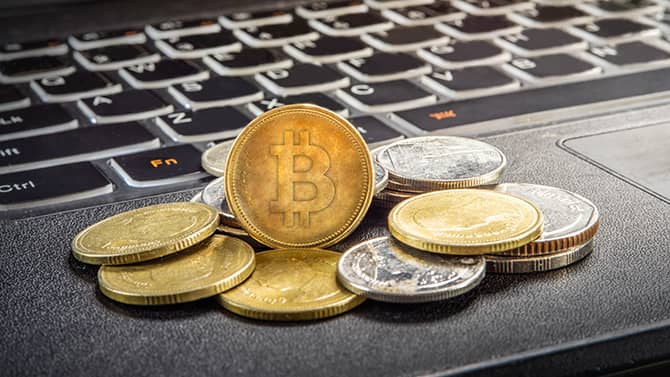Introduction: Bitcoin’s Excursion to Making History
At the point when we talk about technological upheavals, scarcely any innovations have made as quite a bit of an impact as bitcoin making history. In a little more than a decade, Bitcoin has developed from a dark venture into a global financial force. It has challenged the traditional ideas of cash, altered the landscape of the financial industry, and even sparked debates about the actual nature of money and value. Bitcoin is not only a digital asset — it’s a revolutionary development in the way we think about and use cash.
Things being what they are, the reason is Bitcoin viewed as a historical peculiarity? This article will take you on an excursion through the origins, development, and challenges of Bitcoin, highlighting the key minutes that have shaped its path to becoming one of the most talked-about and transformative innovations within recent memory.
What is Bitcoin?
Understanding the Fundamentals of Bitcoin
Bitcoin is a form of cryptocurrency, a kind of digital or virtual money that utilizes cryptographic procedures to get transactions. Dissimilar to traditional cash, which is constrained by legislatures and central banks, Bitcoin operates on a decentralized organization, meaning it isn’t represented by any single authority. Instead, it depends on an organization of PCs (called hubs) spread across the world, working together to check and record transactions on a public record known as the blockchain.
The Introduction of Bitcoin
The idea for Bitcoin was brought into the world in 2008 when an individual (or gathering) known as Satoshi Nakamoto released a whitepaper named Bitcoin: A Distributed Electronic Cash Framework. In this paper, Nakamoto outlined the principles of another form of cash that could operate outside the traditional banking framework. Simply a year later, in 2009, Nakamoto mined the main Bitcoin block — known as the genesis block — and the Bitcoin network was conceived.
The Vision Behind Bitcoin
Bitcoin’s primary goal was straightforward: to create a decentralized, digital form of cash that didn’t depend on banks or legislatures for trust. Basically, Bitcoin was intended to be “distributed” digital cash, allowing individuals to send and get payments straightforwardly, with no intermediaries. This vision was radical at the time, challenging the established financial frameworks that had been in place for hundreds of years.
How Bitcoin Functions
Bitcoin transactions are validated using blockchain innovation, which is a distributed record that records all transactions across the organization. Instead of relying on a centralized database, the blockchain is maintained by various participants (miners) who utilize computational ability to confirm and get transactions.
Each time a client sends Bitcoin to another client, the transaction is recorded on the blockchain, where it is scrambled and confirmed by the organization. Once affirmed, it turns out to be part of the immutable history of Bitcoin. This framework guarantees that Bitcoin transactions are secure, transparent, and irreversible.
Bitcoin’s Impact on the Financial Framework
Bitcoin’s actual impact goes far past being another form of digital cash. It has altered our thought process about and use money, creating swells in the global financial framework.
Decentralization: A Paradigm Shift
One of the most impressive aspects of Bitcoin is its decentralization. In contrast to traditional monetary forms, which are constrained by central banks, Bitcoin is not expose to any one authority. This decentralized nature eliminates the requirement for intermediaries like banks, making Bitcoin a more proficient and secure form of cash.
Bitcoin as a Store of Value
Bitcoin’s job as a store of value is one of the vital reasons for its increasing popularity. After some time, Bitcoin has shown to be a fence against inflation, similar as gold. As fiat monetary standards around the world continue to lose value because of inflationary strategies, many investors have gone to Bitcoin as a safe haven for their wealth.
Bitcoin vs. Traditional Assets
While comparing Bitcoin to traditional assets like gold or fiat monetary standards, it offers several advantages. Bitcoin is more portable, easier to store, and can be transferred globally in minutes. Additionally, dissimilar to gold, Bitcoin is not expose to the same storage and transportation challenges, making it a profoundly effective store of value.
Bitcoin’s Price Milestones
Bitcoin has gone through several price milestones that have solidified its place in history. Each of these minutes has carried the cryptocurrency nearer to mainstream acceptance and acknowledgment.
The Principal Bitcoin Transaction
The primary real-world Bitcoin transaction took place in 2010 when a programmer named Laszlo Hanyecz paid 10,000 BTC for two pizzas. At the time, Bitcoin was worth only a couple of pennies, so this transaction was worth under $30. Nonetheless, with Bitcoin’s dangerous price development in the years that followed, this transaction has become legendary in the cryptocurrency local area.
The 2017 Bitcoin Blast
In 2017, Bitcoin’s price flooded higher than ever, reaching an all-time high of nearly $20,000. This price blast carried Bitcoin into the global spotlight and prompted a media craze. The brilliant rise in price was driven by increased investor interest, speculation, and media coverage. While Bitcoin’s price would later fall, this period marked a pivotal crossroads in its history, cementing buy bitcoin as a legitimate financial asset.
Bitcoin’s Rise to $20,000
Bitcoin’s rise to $20,000 in 2017 was emblematic for several reasons. To start with, it demonstrated the monstrous potential of cryptocurrencies to disrupt traditional financial markets. Second, it marked the beginning of Bitcoin’s transition from being a speculative investment to a more mainstream asset class. Despite the fact that Bitcoin’s price experienced significant volatility in the aftermath, this price milestone cemented its place in history as the most valuable digital money.
The Challenges Bitcoin Has Faced
Regardless of its noteworthy development and accomplishments, Bitcoin has faced various challenges on its path to becoming a broadly accepted digital cash.
Regulatory Obstacles
Since its inception, Bitcoin has faced regulatory uncertainty. Legislatures and financial institutions have attempted to determine how to classify Bitcoin — whether as a product, cash, or something else completely. In certain nations, Bitcoin has been banned or heavily regulated, while others have embraced it as a legitimate form of cash.
Volatility and Market Fluctuations
Bitcoin’s price volatility has been a major obstacle to its adoption as a stable form of money. The rapid rise and fall in Bitcoin’s price has made it hard for businesses and shoppers to involve it for everyday transactions. While this volatility has created open doors for traders, it has also caused skepticism among the people who are hesitant to adopt Bitcoin as a reliable store of value.
The 2020-2021 Bull Run
The Coronavirus pandemic and resulting monetary uncertainty set off another bull run for Bitcoin. After a time of stagnation, Bitcoin’s price flooded in late 2020 and early 2021, reaching new all-time highs. This period marked a turning point in Bitcoin’s excursion, as institutional investors and major companies began to take notice of its potential as a support against inflation.
Bitcoin’s Global Adoption
As Bitcoin’s influence continues to develop, it is increasingly being adopted around the world, with additional individuals and businesses embracing it as a form of payment and investment.
Bitcoin in Everyday Life
In certain nations, Bitcoin is already being utilized as a means of payment for goods and administrations. Online merchants, restaurants, and even real estate companies have started accepting Bitcoin as a valid form of payment. While it is still far from being universally accepted, Bitcoin’s growing use in everyday life signals a shift toward digital monetary standards becoming a more mainstream means of exchange.
Institutional Adoption
Lately, Bitcoin has gained significant traction among institutional investors. Companies like Tesla, MicroStrategy, and Square have purchased large amounts of Bitcoin as part of their treasury management strategies. This shift has legitimized Bitcoin as a financial asset and has opened the entryway for more mainstream adoption.
El Salvador: The Primary Bitcoin Nation
In 2021, El Salvador became the principal country on the planet to adopt Bitcoin as legal delicate. This groundbreaking move was viewed as a strong examination to demonstrate the potential of Bitcoin in real-world economies. On the off chance that fruitful, different nations may follow after accordingly, further cementing Bitcoin’s place in history.
Bitcoin and the Fate of Digital Cash
Looking ahead, Bitcoin’s part in the global financial framework is supposed to continue evolving. The rise of Central Bank Digital Monetary standards (CBDCs), as well as growing interest in decentralized finance (DeFi), will probably shape the fate of Bitcoin and digital monetary forms in general.
The Job of Bitcoin Later on Financial Framework
As states and central banks around the world investigate digital monetary forms, Bitcoin will continue to challenge traditional financial frameworks. Its decentralized nature and restricted supply make it a compelling alternative to fiat monetary standards, which are dependent upon inflation and manipulation.
The Rise of Central Bank Digital Monetary forms (CBDCs)
Many central banks are exploring the creation of their own digital monetary forms, known as CBDCs. While these monetary forms would be centralized and government-backed, they address a potential challenge to Bitcoin’s dominance as a decentralized money. The rise of CBDCs could lead to increased rivalry and regulatory scrutiny for Bitcoin.
Conclusion: Bitcoin’s Legacy
Bitcoin has already made its mark on history. From its humble beginnings as a whitepaper to its status as a global financial asset, Bitcoin has challenged conventional ideas about money, value, and the financial system. It has faced many hurdles, including volatility, regulatory uncertainty, and skepticism, but it has persevered and continues to evolve.






More Stories